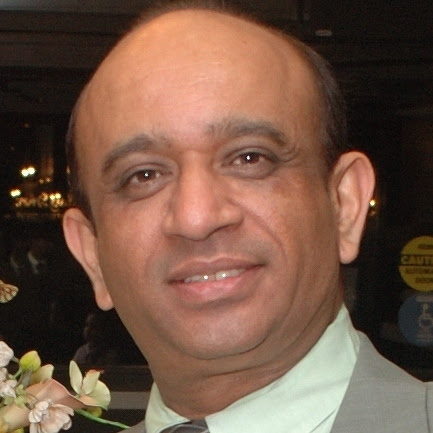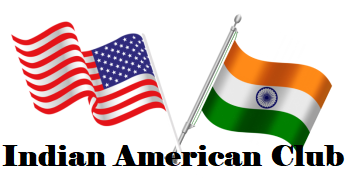
Shashi Airi thinks of his life as a unique journey that was lived in different countries of the world and filled with colorful experiences both in personal and professional spheres. “I personally believe that change is always good. It gives you new opportunities. It makes you learn new things. You adapt to the new society, or whatever it is. I have travelled across the globe, from India to the United States to Canada to the Middle East, to all over those places, and it was never a problem for me. I actually enjoyed it.”
Shashi’s journey started in Delhi where he was born on February 1, 1962. His mother Saroj Tejpal from Nawanshar, Punjab and his father Ravinder Kumar Airi from Hoshiarpur, Punjab had met through an “arranged marriage” proposal and married in 1960. His father Ravinder Kumar Airi worked for Central Public Works Department (CPWD) of Government of India. Throughout Ravinder’s career as a government officer, he was posted every five years to a different city to manage projects finances. Shashi moved for the first time at age six when his father transferred to Ludhiana.
“Then, from there, we moved to a place called Nangal, a town primarily populated by the employees of Bhakra Dam one of the largest hydro projects in India. My dad was in-charge of that, so, we went there. I think we were there only for two years before he was assigned to a new project that was starting in Jammu and Kashmir. It is called Salal Hydro Project. So, he was transferred over there. As you can see, there was a lot of movement in a very short span of time” recalls Shashi. This made it hard to make any meaningful long-term friendships as a child. However, this strengthened his relationship with his extended family with whom he remembers spending many a summer vacation.
“Yes, at some point, my mother got tired of packing all the time and moving, but, for the most part, we did enjoy it. As I said, travelling to new places, which, if you had to go for vacation, out of your pocket, was a very expensive affair at that time–and then, every two, three years, you’re moving to a new location and enjoying the whole area–that was the fun part.” Packing and moving was thrilling, seeing new places exciting, and making new friends was intriguing. Wherever they went his father lived in housing provided by government and he attended the government school in town. “During those days, it was a minimalistic society. We did not have too many demands. We lived with whatever we had. We were pretty happy doing whatever we could within our own community, within the colony…we enjoyed everything outdoors, like playing on the streets to jumping from the trees or whatever you can think of.” Shashi feels that playing cricket, soccer, field hockey, and other outdoor games with friends had a very positive impact on him. He never had to depend on television for entertainment. Friendships however short-lived never left him sad because wherever he went, he created “a new circle of friends.” The constant change of environment increased his ability to adapt to and adopt giving him the much-needed skill to become a successful professional in life later.
Traveling to various cities in India also gave him a chance to see India and experience the cultures and customs of the areas he lived in. He remembers traveling throughout Kashmir without experiencing the religious fanaticism and violence seen today. “It literally has destroyed the whole valley. Many families have been uprooted, destroyed, financially, psychologically. It is heart wrenching. I still remember those days when we used to play together. We would go all over the place without any fear. I mean, there were times when we would go out at four o’clock in the evening and the only time, we’ll return home was, when we hear our mothers yelling our names… then we would come home.” It was an “easy-going time” and life revolved around school, friends, and the excitement of meeting new people and seeing new places.
Shashi always felt that the education system did not necessarily prepare students to pursue a career that they would enjoy for the rest of their life and the parents were always pushing their children to pursue medical, engineering, or law. He took training at the National Military Academy, but his parents did not want him to join the Armed Forces. Since he was very outgoing and fond of meeting people, he then decided that sales and marketing would be a good career path for him. Fluent in Hindi, Punjabi, and Urdu Shashi also started writing poetry during his college years. Overall, Shashi enjoyed college exploring different opportunities that came across his way besides studies.
Unlike his father Shashi did not want to pursue a career in the government and made a pact with his father to support him for five years while he established his career in sales and marketing. His friend introduced him to Life Insurance Corporation of India (LIC), and he became an agent with them in 1983. The first three months were not productive despite knocking on doors all day. But after that all the hard work paid off and in the next six months Shashi became the top producer in the branch, then in his office, city, and the region. By the time he was in his fourth year as an agent he had become the top producer in the country. He was one of the first successful professionals to be interviewed on the television program “Hum Honge Kamyab” (I will be successful) in 1989.
“Education as I said, gives you basic understanding of the things around you. Other than that, when you face situations , you learn things then” and Shashi learned from his experiences and interactions with people to become better at his craft. As a trainer and life coach the first thing he told new recruits was that “you have to believe in yourself” and the second, as they say, “if you keep doing one thing over and over, you become an expert”. He was dedicated, he cared about his clients, and became an expert on “how to handle objections, how to handle things, how to react to people when they are rude or whatever.” This he believes is the secret of his success.
Life took a major turn for Shashi in the late 80s. “In the mid-late 80s the cultural rift [between Hindus and Muslims] was widening every single day. I was giving lectures on religious harmony, cultural harmony, and a message of peace and all that. So, at one of my programs where I was a speaker, I had given a lecture there on harmony of the communities. Shots were fired. So, bullets literally missed me and just passed my head.” After this incident in 1992 his family was extremely worried for his safety and they wanted him to leave the country for some time.
In 1994 he received a Visitor Visa for USA and Canada. His first stop was Vancouver, Canada. While traveling in Canada he decided to stay there and applied to the Canadian government to adjust his visa. Having a professional background and an MBA gave him an edge and he received his green card in 1996. Transamerica hired him to manage Eastern Canada region because of his extensive experience in the insurance industry and Shashi settled in Montreal.
In 2002 Shashi decided to move permanently to USA as his ex-wife lived in New Hampshire. He did not face any immigration issues in USA as he had had been living and working in Canada. “All of a sudden, from the cities, I’m in boondocks, where you have more deer and moose than people (laugheter)” and so Shashi in the same spirit of adventure that had taken him around the world began adjusting to his new environment. He obtained required licenses to practice become a life insurance agent in USA and started working as a Regional Manager for Old Mutual Insurance Company in 2003. His independent contractor status allowed him to work with other insurance companies as well. In 2006 he also began managing his friend’s hotel business that comprised of four hotels in New Hampshire and Vermont area. Shashi did not continue with his new venture after 2008 as the financial outcome was not worth the effort and the negative impact it had on his quality of life. Instead, he decided to focus on his own insurance business.
In 2008, he married Sowmini Hassan from New Jersey and moved to North Brunswick. While in New Hampshire and surrounding areas there were not many South Asian families Shashi was thrilled to find that New Jersey had a booming South Asian population just like Canada. After arriving in New Jersey Shashi had 56 agents working for him and he was able to establish a successful business. Unfortunately, in 2010 he met with a serious accident that injured his spine. Despite successful surgeries he had to close his thriving insurance business and take a break from his hectic travel and work schedule. Never the one to accept defeat and always looking for opportunities Shashi began to focus more on philanthropic activities.
Inspired by his stepson Yoga who had developmental disability and motivated by his wife Sowmini’s dedication, he established a non-profit organization Smarana International. With offices in India and Australia the organization focuses on raising awareness about the needs of individual with disabilities and assisting individual with disabilities and their families. Today Smarana serves close to a thousand people and while the COVID pandemic has impacted the in-person services Shashi is hopeful that they will be able to start providing services as soon as it is safe to do so. He is actively involved with Heart and Hands for Handicapped located in New York and in 2014 he served as a board member. In 2014 Shashi joined the Board of Enable and served as the Board President in 2016 and 2017. In addition, to assisting individuals with disabilities Shashi is also concerned about the issues faced by many seniors in our society and is working towards establishing a non-profit through which he could provide much needed assistance. Today, Shashi continues to support these causes with the same passion that drove him for years to excel in his insurance business – belief in oneself and gaining expertise from real-life experience.

